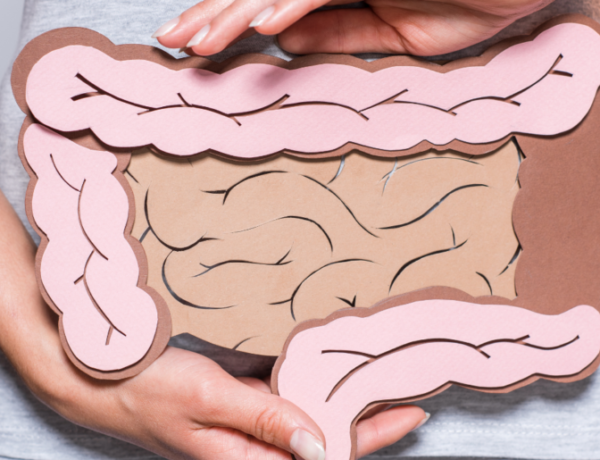What is inflammation?
Inflammation is the body’s natural response to stimuli, such as viruses, bacteria, damaged cells or tissues, injuries, cuts, or any other external or internal irritant. Signs of inflammation are pain, heat, redness, and swelling. Inflammation is a normal, protective process of the immune system to eliminate the source of irritation as quickly as possible, thus initiating a repair and healing process. Acute inflammation results in an increase in white blood cells, the body’s initial response to a stimulus. Chronic inflammation is characterised by tissue destruction and, at the same time, by repair of the tissue injured by the inflammatory process. It leads to a long-term decrease in white blood cells.
What are the sources of chronic inflammation?
Food intolerances/sensitivities (gluten, dairy, corn, soy, eggs, etc). Any food that is not digested properly (sugars, starches, alcohol, carbohydrates or proteins) will create inflammation. Also, chronic stress, or acute intense stress, chronic infections (bacteria, viruses, yeast, parasites, etc.), chemicals (heavy metals, drugs, pesticides, dioxins, phthalates, benzoates, parabens, dyes, etc.) as well as overexposure to electromagnetic fiels
How does inflammation occurs?
All of the above potential sources of inflammation can irritate the protective barriers of organs: intestines, lungs, mucous membranes, skin or blood-brain. The intestinal protective barrier becomes porous and toxins pass from the intestine into the bloodstream. Once in the bloodstream, the toxins attach to proteins that are destined to go to tissues such as joints, muscles, organs, glands, etc. …. and eventually disrupt the function of these organs or tissues. The toxins are then attacked by the immune system (white blood cells), which leads to symptoms such as allergies, itchy skin, pain, and autoimmune symptoms, thus inflammation. A protein called NF-kB controls inflammation; this protein can become chronically elevated, even if the source of inflammation has disappeared. This is due to a mechanism that amplifies the effects of NF-kB unless an active NF-kB inhibitor is taken. Natural inhibitors of NF-kB are Resveratrol and turmeric used in combination. Together they are able to modulate inflammation like non-steroidal painkillers! (Ibuprofen, Aspirin, Paracetamol).
Chronic Inflammation can lead to:
– Obesity
– Depression
– Infertility
– Insulin resistance and diabetes
– Cardiovascular diseases (dyslipidemia, stroke, thrombosis, hypertension)
– Osteoporosis & arthritis
– Atherosclerosis
– Asthma
– Sleep apnea
– Chronic pain
– Migraines
– Muscle atrophy and sarcopenia
– Porous bowel syndrome
– Autoimmune diseases
– Cancer
– Immune system dysregulation
– Multiple reactions to chemicals
– Impaired liver function (by suppression of cytochrome P450)
What to do to reduce/stop inflammation?
It is important to identify and eliminate as much as possible, the possible causes creating chronic inflammation. It is necessary to repair the intestinal permeability with a diet such as Paleo, AIP, GAPS, or WAPF. For this, one can use natural anti-inflammatories contained in fish oils and fish liver oil associated with Turmeric and Resveratrol in combination.
- The Paleo Diet
Based on the principle that man, from its origin, fed on hunting, fishing, and gathering. He did not consume cereals, dairy products, sugars, legumes, alcohol, or processed food. The meat of wild animals is naturally balanced in Omega 3-6-9. Meat from pasture raised animals is rich in Omega 3. The paleo diet is accompanied by a regular exercise program. It aims at overall good health and certainly helps reduce inflammation.
2. The AIP Diet: Self-Inflammatory Protocol
This is a diet that eliminates all potentially inflammatory foods. It is derived from the paleo diet but is more restrictive. It aims to repair the porous intestine, the source of all autoimmune diseases. We will therefore eliminate: all cereals, legumes, dairy products, refined sugars, sweeteners, processed foods, industrial vegetable oils, but also eggs, oilseeds, nightshades, coffee, chocolate, chewing gums, and thickeners.
3. The WAPF diet:
Weston A. Price Foundation: Aims to educate on TRUE, unadulterated nutrition. Based on the work of Dr. Weston Price, an American dentist who studied the traditional diet of indigenous people from all continents. All foods are consumed, but they must be of healthy origin (raised in the open air, without antibiotics, hormones or pesticides, etc.) and must be prepared correctly to facilitate their digestion. Particularity: the soaking of cereals, legumes and oleaginous for a better digestion, and/or their fermentation (ex: sourdough bread).
4. GAPS diet:
Gut and Psychology Syndrome : This concept was created by Dr. Natasha Campbell-McBride, MD. GAPS establishes the connection between the intestines and the rest of the body. The particularities of the GAPS diet: broth, fermented foods, animal fats, and organ meats in order to restore the intestinal flora.
Conclusion:
Inflammation a totally natural process. It is an important message that the body is “attacked” or irritated by something. It is necessary to find the causes (which are multiple). There is no point in taking anti-inflammatories (drugs or natural) over the long term, which only mask the source(s) of the problem. To do this, we must do the following tests: blood analysis (CRP, fasting glucose, sedimentation rate, homocysteine, fibrinogen), food intolerances, heavy metals, chronic infections, dental problems, and skeletal problems (bad posture, scoliosis) etc. in order to understand the normal and natural reactions of the body.
Yours in health,
Beatrice Levinson
Naturopath & GAPS practitioner









No Comments